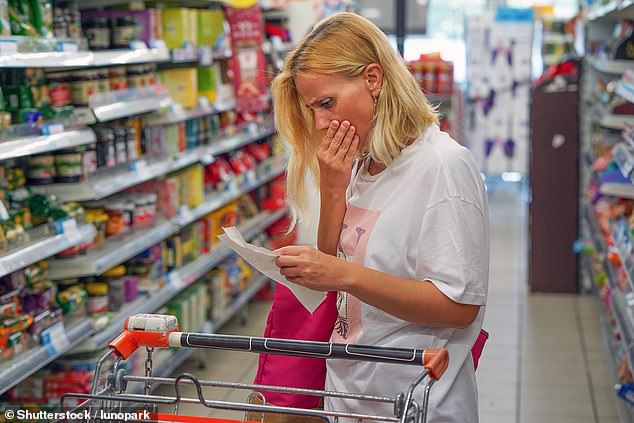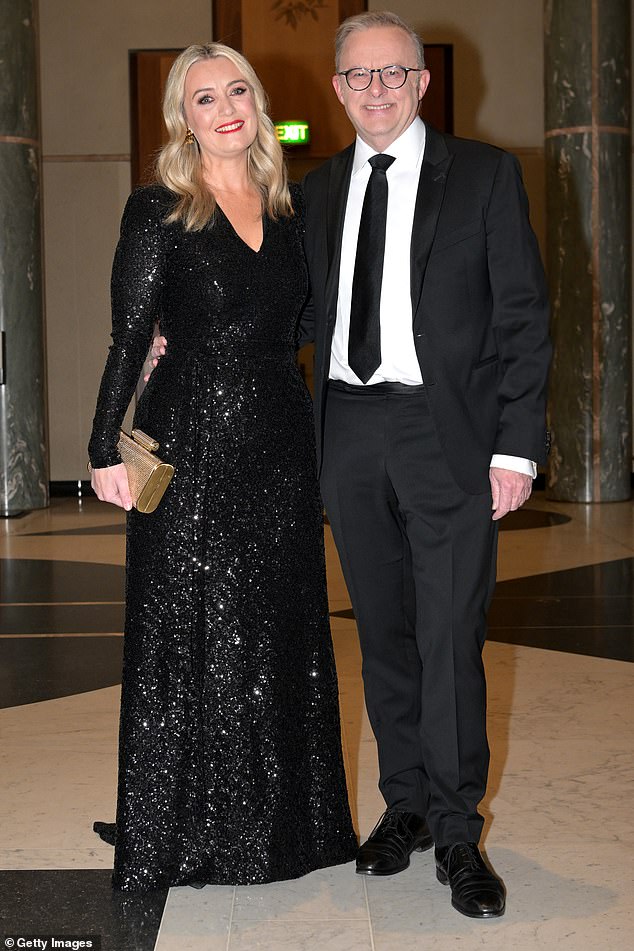A surprising new poll has revealed that more than a third of Australians blame Anthony Albanese’s government for the cost of living crisis and more than half of them would struggle to pay a major expense.
Voters surveyed in the Resolve Political Monitor survey for Nine The newspapers found that 36 per cent blame the federal Labor government for high prices, while 58 per cent said they have so little money left over each month that they would struggle to cover unexpected expenses, such as a new refrigerator or car repairs.
Only 13 percent of respondents said global factors outside the government’s control were to blame for high prices and interest rates.
While the Labor primary vote has risen two points to 30 per cent over the past month, it is still well below the level that won them the 2022 federal election.
What is more worrying for Labor is that the Coalition recorded its highest level of support since the election, rising one point to 38 per cent.
This would leave both parties tied if elections were held now, and either side would need the support of minor parties and independents to form a government.
Resolve Director Jim Reed said voters are making their feelings known about how the cost of living affects them.
“People recognize that there are a variety of factors at play, but they see governments as at least partly to blame for inflation, and they certainly see the federal government as responsible for fixing the problem,” he said.
A shocking new poll has found more than a third of Australians blame Anthony Albanese’s government for the cost of living crisis. Albanese is pictured with his fiancee Jodie Haydon

A whopping 36 per cent of voters blame the federal Labor government for high prices. stock image
Thirty percent of voters said they would prefer if the next election, scheduled for May 2025, led to one side or the other forming a minority government.
But 36 percent said they wanted a clear majority government to be formed, while 34 percent were unsure which direction they wanted the election to take.
As for who voters would prefer to see as prime minister, Albanese narrowly leads opposition leader Peter Dutton by 38 percent to 35.
However, Dutton and the Coalition are more trusted to manage the economy: 38 per cent back them, while only 26 per cent favor Albanese and the Labor Party.
The Coalition has also been better judged on the cost of living: 31 per cent said it would do a better job, while only 24 per cent said Albanese and the Labor Party would be better at it.
Voters are also unhappy with the Prime Minister’s performance: 53 per cent said it was bad and only 35 per cent said it was good.
Dutton fared better: 40 percent considered his performance good and 41 percent considered it poor.
Although the Reserve Bank decides the interest rate, 52 per cent of people said the government and Treasurer Jim Chalmers had the most responsibility.
Chalmers won’t be too happy with the poll overall, with only 24 percent saying they prefer him for the job.
The silver lining for him, however, is that only 18 per cent said Shadow Treasurer Angus Taylor was their preferred candidate for the job, which is generally considered the second most important after the First Minister.

More than half of those surveyed said they have so little money left over each month that they may struggle to cover an unexpected bill, such as a car repair. stock image
“A large portion of the electorate is still trying to cope with the price increases we have seen in recent years,” Mr. Reed said.
“Static foods like meat, eggs, olive oil and snacks top the list of concerns.”
Fifty-nine percent of respondents said food and other essentials were their biggest cost-of-living concern.
In a question that allowed multiple options, 37 percent said utility bills were a concern for them, while 21 percent were worried about the cost of rent.


